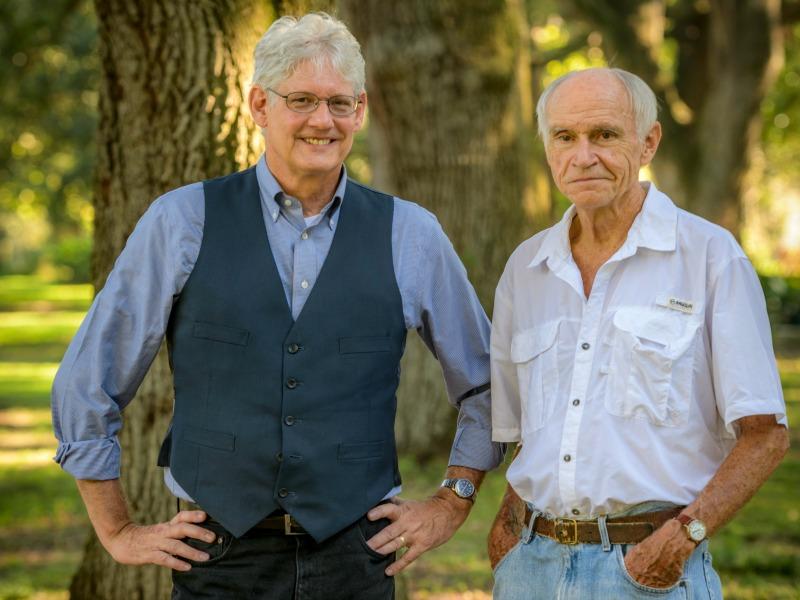Gov. Edwards to help launch Tulane Center for Environmental Law
Louisiana Gov. John Bel Edwards will mark the official launch of the Tulane Center for Environmental Law with a keynote speech in late March, a nod to the importance Tulane Law School’s work as an international powerhouse in the field.
To mark the occasion, Edwards will make his address March 21 at 5:30 p.m. at the start of the law school’s annual Environmental Law and Policy Summit which continues Friday (March 22) and Saturday (March 23).
The keynote will introduce a prestigious panel of alumni, scholars and advocates who will discuss the state of environmental policy and the urgent mission of the Center in a state whose very survival is dependent on the protection of its wetlands and waterways. The event will be held at the law school’s John Giffen Weinmann Hall, 6329 Freret St., in the Wendell H. Gauthier Appellate Moot Court Room 110, with a reception to follow. The panelists include:
- Oliver Houck, David Boies Chair in Public Interest Law, moderator
- Ruth Ann Castro (L'00), Senior Environmental Counselor, Google.
- Gladstone Jones III (L’92), Partner, Jones, Swanson, Huddell and Garrison, LLC
- Douglas McKeige (L’86), Director, Saxena White; Managing Director, Business Development, GMF Capital
- Patricia Murray (L’84), Former Judge, Fourth Circuit Court of Appeal (1994-2010); Adjunct Professor of Toxic Torts, Tulane Law.
Since 1972, Tulane has been a leader in the study of environmental issues and advocacy. Forty-six years later, it boasts one of the nation’s most comprehensive curricula in the field, the largest faculty-supervised environmental law clinic in the country and an influential think-tank on water law and policy.
“Tulane Law School has long been renowned in environmental law, with high-impact faculty scholarship, a highly-regarded clinic and the Tulane Institute for Water Resources Law and Policy,” said Law Dean David Meyer. “The Center will serve to enhance and preserve Tulane’s national and international leadership in environmental law for decades to come.”
Professor Mark Davis, the longtime Director of the Tulane Institute for Water Resources Law and Policy and more recently of Tulane University’s ByWater Institute, will serve as the founding director of the new Center.
“We see this as the master gear to bring various pieces of Tulane’s environmental law program together,” Davis said. “There are a rash of things coming in the area of environmental law that are bringing the environment to the forefront of public debate and decision-making. Tulane has always been a place that people look to for ideas when there are challenges and opportunities. Our knowledge in the law and our public service efforts have played a critical role in positioning Tulane as a leader in environmental law.”
The Center’s mission will be to expand Tulane’s existing environmental program and ensure that it remains a world leader in the field, while serving the public as a hub for research and discourse on emerging issues, Meyer said.
The Center’s March 21 launch will kick off Tulane’s 24th Annual Environmental Law and Policy Summit. The two-day Summit is one of the nation’s largest gatherings of scientific, legal, and policy experts addressing a comprehensive range of cutting-edge issues from wildlife and fisheries management to renewable energy policy. The American Bar Association in 2014 recognized the Summit as the nation’s most outstandanding student-led environmental program. Information on the Summit is here.
Last year, the Summit drew hundreds to the law school and featured keynote speaker Jean-Michel Cousteau, son of environmental icon Jacques Cousteau.
The Center will also help aid students in the Environmental Law Society and Environmental Law Journal, as well as those working on a certificate of specialization and LLM degree in the field.
The Center will also be a platform to raise substantial funding to support a significant expansion of Tulane’s strength in the field, Meyer said. Begun with a generous gift from McKeige, it will become one of the most significant fundraising priorities for the Law School in Tulane’s $1.3-billion Only the Audacious Capital Campaign which launched in December 2017.
Another critical contribution to the Environmental Law Center’s resource development is focused on the Law School’s capacity to attract top faculty talent in the area of environmental law. An initiative to fund a faculty Chair in Environmental Law was recently launched with generous founding gifts by the law firm Jones, Swanson, Huddell and Garrison, LLC, which includes in its ranks Tulane Law alumni Jones, Kevin E. Huddell (L’00), Bessie Antin Daschbach (L’01), Tad Bartlett (L’00) and Lindsay Reeves (L’09), and alumni Steve Murray Sr. (L’67) and the Honorable Patricia Rivet Murray (L ’84).
The faculty chair will be named in honor of Professor Oliver Houck, who helped found Tulane’s environmental law program and remains one of the country’s most influential figures in the field.
For students, the related initiatives to expand support for environmental law will mean an enhanced curriculum, greater opportunities for research and public service as well as access to internationally-renowned faculty, internships and alumni. In short, it will make it easier to “know what we do, and how to engage alumni and our community to create greater opportunities for students,” Davis said.
“Tulane’s leadership in environmental law has never been more important,” Meyer said. “This major initiative, with the launch of the Center and the ambitious effort to raise the resources necessary to its success, will ensure that Tulane faculty and world-class, Tulane-trained lawyers continue to lead the way in finding solutions to the vexing challenges that lie ahead.”
The Center now occupies new quarters in the Law School Annex next to the John Giffen Weinmann Hall, where it will be housed alongside the new Tulane Center for Energy Law.

